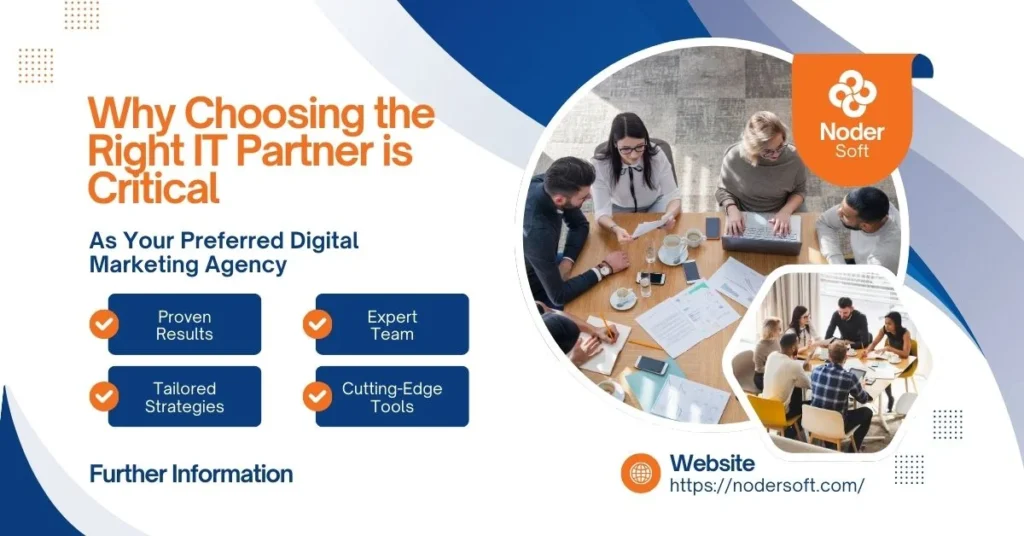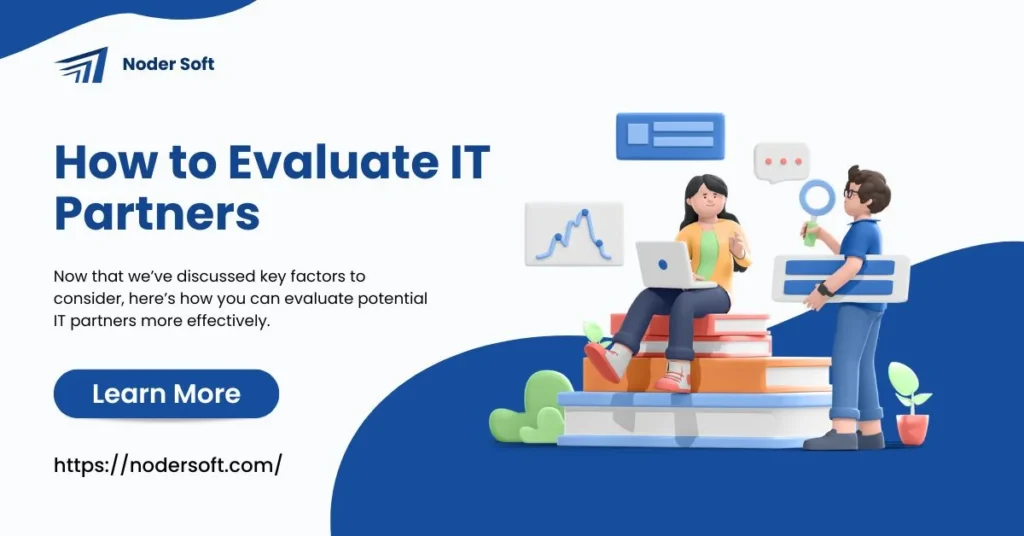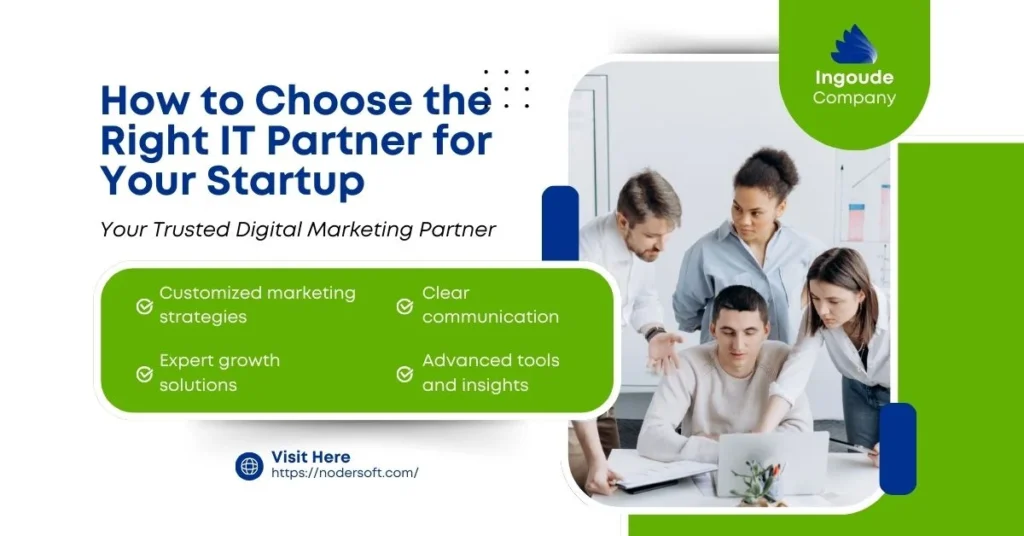Selecting the right IT partner is one of the most critical decisions a startup can make. Whether you are developing a tech product, implementing business solutions, or looking to scale your operations, the right IT partner can guide you through your journey. In today’s rapidly evolving tech landscape, aligning with an expert IT partner will help your startup innovate, grow, and stay competitive.
In this article, we will explore key factors to consider when choosing an IT partner for your startup, ensuring that your decision leads to long-term success and value.
Why Choosing the Right IT Partner is Critical

For startups, technology is often the backbone of business operations. From software development to IT infrastructure, the right technology partner can help your business overcome challenges, scale, and thrive in an increasingly digital marketplace.
Benefits of Choosing the Right IT Partner:
- Scalability: As your startup grows, your IT needs will evolve. A reliable partner can ensure your tech infrastructure scales alongside your business.
- Innovation: An experienced IT partner can provide the latest technology solutions, keeping you ahead of the competition.
- Security: With cyber threats on the rise, having a trusted IT partner ensures your data and systems remain secure.
Key Factors to Consider When Choosing an IT Partner
When searching for the right IT partner, there are several critical factors that will help you make an informed choice. Here are the top elements to consider:
1. Industry Experience and Expertise
An ideal IT partner should have a proven track record in your specific industry. Whether you’re in fintech, e-commerce, healthcare, or SaaS, the partner should understand the unique challenges your startup faces.
- Ask for Case Studies: Look for real-world examples that demonstrate their success in working with startups in your niche.
- Seek Specialized Solutions: A partner who understands the ins and outs of your business model can offer tailored solutions that bring the best results.
2. Reputation and Trustworthiness
Your IT partner is responsible for handling sensitive information, so trust is paramount. It’s essential to partner with someone who has a solid reputation and is known for delivering on their promises.
- Check Reviews and Testimonials: Research customer reviews, testimonials, and case studies.
- Certifications and Awards: Look for industry certifications and awards that demonstrate their credibility.
3. Scalability and Flexibility
Startups grow, and so should your IT solutions. Your partner should offer scalable infrastructure that adapts as your business evolves.
- Cloud Solutions: Cloud platforms like AWS, Google Cloud, and Microsoft Azure provide scalable infrastructure for startups.
- Customizable Packages: Make sure the IT provider offers flexible service packages based on your needs and budget.
4. Security Standards and Data Protection
Data security is a top concern for all businesses, especially startups that are dealing with sensitive customer data or proprietary business information. Your IT partner should prioritize security in all their solutions.
- Compliance: Ensure your partner complies with necessary regulations (e.g., GDPR, HIPAA).
- Security Protocols: Ask about their encryption, data backup, and recovery processes.
5. Customer Support and Responsiveness
Technology is not flawless. Sometimes, systems fail or need adjustments. In these moments, having a responsive IT partner who can provide quick support is invaluable.
- 24/7 Support: Look for partners that offer round-the-clock support for critical issues.
- Dedicated Support Team: A dedicated point of contact ensures faster resolution of technical challenges.
6. Cost-Effectiveness
Startups operate with limited budgets, so it’s crucial to find an IT partner who can provide value without breaking the bank.
- Transparent Pricing: Clear and upfront pricing helps avoid unexpected costs down the road.
- Cost-Effective Solutions: Look for IT providers who offer flexible pricing based on your specific needs and growth stage.
How to Evaluate IT Partners

Now that we’ve discussed key factors to consider, here’s how you can evaluate potential IT partners more effectively:
1. Ask the Right Questions
When speaking with prospective IT partners, asking the right questions can give you valuable insights into their capabilities. Here are some to consider:
- What experience do you have in our industry?
- How do you ensure scalability for growing businesses?
- Can you provide examples of businesses similar to ours that you have worked with?
- What is your approach to cybersecurity and data protection?
- How do you handle emergencies or technical failures?
2. Conduct a Trial Run
Before fully committing, it’s a good idea to start with a small project or pilot program. This will give you a chance to assess the partner’s capabilities and responsiveness without a long-term commitment.
3. Review Contract and Terms
Make sure you review the contract thoroughly. Check for clear terms regarding service-level agreements (SLAs), confidentiality, and exit clauses.
Final Thoughts on Choosing the Right IT Partner
The right IT partner can make or break your startup’s success. Whether you are launching a product, expanding operations, or securing your data, the expertise, experience, and reliability of your IT partner play a major role.
By taking the time to evaluate your options based on experience, scalability, security, and cost-effectiveness, you can build a long-term partnership that supports your startup’s goals. Remember, a good IT partner will not just solve your problems but will also help you innovate, grow, and stay ahead of the competition.
Frequently Asked Questions (FAQs)
1. How do I know if my IT partner is reliable?
Look for a partner with a proven track record, positive reviews, and industry certifications. Client testimonials and case studies can help verify their reliability.
2. What are the signs of a good IT partner for a startup?
A good IT partner understands your unique needs, offers scalable and secure solutions, and is responsive to your business challenges.
3. How much does it cost to hire an IT partner?
The cost depends on the services offered and the complexity of your needs. Ensure transparency in pricing and consider providers who offer flexible, scalable solutions.
4. How long does it take to establish an IT partnership?
Building a strong partnership can take a few weeks or months, depending on the complexity of your startup’s needs and the partner’s processes.
5. Can an IT partner help with future technology upgrades?
Yes, a good IT partner will help you stay updated with the latest technologies, ensuring your systems evolve as your business grows.
Explore our comprehensive guide on Job Hunting to kickstart your career journey today!

